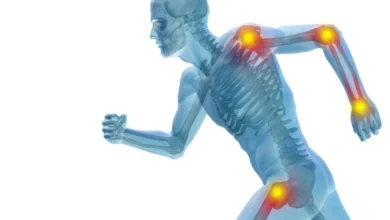Health, a foundational aspect of human life, has seen its share of challenges rise with the unfolding of the 21st century. Though we’ve celebrated medical breakthroughs and expanded our understanding of well-being, silence continues to shroud certain health issues, primarily due to societal taboos. These taboos, deeply entrenched in cultural and individual perceptions, not only limit open dialogue but also deter many from timely treatment. Unravelling the complexities of these taboos and their origins becomes vital, aiming to foster a society that is more informed, compassionate, and proactive in its approach to health.
In this article
The Silent Struggles: Understanding Health Stigmas in Society
Every culture and society has its own set of unspoken rules and taboos that shape the perceptions and behaviours of its members. In the realm of health, these stigmas often manifest as unspoken judgements, inhibiting individuals from voicing their concerns or seeking medical attention. For instance, mental health issues, despite their prevalent nature, are frequently met with scepticism and avoidance. Often, these stigmas are propagated by misconceptions, lack of education, or mere adherence to outdated beliefs. Addressing these silent struggles begins with identifying the societal constructs that bolster them, promoting awareness, and ensuring that individuals feel heard, understood, and supported.
The Digital Era: How Technology Influences Health Perceptions
Technology has undeniably transformed our lives in myriad ways, and this extends to our perceptions of health. With the surge of information available online, individuals now have a wealth of knowledge at their fingertips. However, this digital boom is a double-edged sword. While it empowers many to understand and manage their health better, it also paves the way for misinformation, perpetuating myths and stigmas around certain health issues. Moreover, the digital world, especially social media, can sometimes portray a skewed representation of health, leading to unrealistic standards and further stigmatisation of those who don’t ‘fit’ the mould. Navigating the digital age requires discernment, ensuring that the technology we embrace enhances our understanding of health rather than detracting from it.
Mental Health Taboos: Why Men Struggle in Silence
The labyrinth of mental health, complex and diverse, often presents a challenge for those navigating its depths, particularly men. Historically, societal constructs have perpetuated the stereotype that men must be the stoic pillars of strength, equating emotional vulnerability with weakness. This misconception fosters an environment where men frequently find themselves suppressing their emotions, afraid of facing ridicule or isolation. Moreover, the lack of open dialogue around men’s mental health often results in feelings of isolation, exacerbating the struggles they face. By dismantling these taboos and offering platforms for open conversation, society can work towards an environment where men, too, can seek help without fear of judgment.
Erectile Dysfunction: Breaking Down Misconceptions and Myths
Erectile dysfunction (ED) stands as a prime example of a health issue that, despite its prevalence, remains shrouded in misconceptions. Many mistakenly believe that ED solely results from psychological issues or view it as an inevitable consequence of ageing. The emergence of the digital age has seen online pharmacies for ED treatments rise in prominence, offering convenient solutions for those seeking discretion. However, the accompanying influx of information online can sometimes perpetuate myths about the condition. Distinguishing fact from fiction is crucial. Comprehensive education on the multifaceted causes of ED, alongside trusted platforms like online pharmacies for ED treatments, can provide clarity, dispelling myths and enabling men to seek appropriate care with confidence.
Alternative Therapies: The Controversies and Benefits Explored
In an era where medical advancements offer solutions to myriad health concerns, alternative therapies continue to carve their niche, often accompanied by polarising opinions. These therapies, ranging from herbal remedies to acupuncture, often trace their origins to ancient traditions. While many swear by the therapeutic effects of such treatments, sceptics highlight the lack of rigorous scientific validation for some practices. Nevertheless, for numerous individuals, alternative therapies offer solace when conventional medicine doesn’t yield the desired results. Healthcare practitioners and patients alike need to approach these therapies with an open mind while also recognising the importance of evidence-based practice. Striking a balance between tradition and modern science can offer holistic health solutions that cater to diverse needs.
The Role of Culture: How Societal Norms Shape Health Taboos
Cultural norms, entrenched in history and tradition, significantly influence our perceptions of health and wellness. From East to West, varying societal beliefs dictate what’s considered ‘normal’ or ‘abnormal’. Some cultures may view mental health issues as a sign of weakness or a spiritual affliction, while others may relegate conditions like erectile dysfunction to the shadows, deeming them too embarrassing to address. Even as globalisation encourages the mingling of diverse cultures, many traditional taboos persist, shaping individuals’ attitudes towards health. Recognising the profound impact of culture on health perspectives is pivotal. Only then can society begin to challenge age-old beliefs that no longer serve our collective well-being.
The Importance of Communication: Starting Conversations Around Difficult Topics
Silence can be a powerful oppressor. By not discussing certain health issues, we inadvertently perpetuate stigma, fostering an environment of ignorance and prejudice. Open dialogue, on the other hand, can be transformative. Initiating conversations around topics that society often shies away from, such as mental health or sexual wellness, demystifies these subjects, creating a platform for understanding and empathy. Communication isn’t merely about talking; it’s about listening, educating, and validating. By fostering a culture of openness, we empower individuals to seek help, share their experiences, and ultimately drive societal change.
Barriers to Treatment: Why Some Men Avoid Seeking Help
It’s an unfortunate reality that, despite available treatments, many men refrain from seeking help for health concerns. The reasons are manifold, ranging from societal stigmas, fear of judgement, lack of awareness, or misconceptions about available treatments. In some cases, the healthcare system itself, with its often daunting bureaucracy, can deter individuals. Add to this the perceived financial implications, and it’s evident why many men might opt for silence over solutions. By understanding these barriers, healthcare providers and society at large can work towards eliminating them, ensuring every individual receives the care they deserve.
Action Steps: Promoting Awareness and Encouraging Open Dialogue
Awareness is the first step towards change. Educative campaigns, community workshops, and media platforms can play a pivotal role in dispelling myths and challenging societal taboos. However, promoting awareness goes beyond mere information dissemination. It’s about fostering environments where individuals feel safe to express their concerns, ask questions, and seek treatment. Organisations, institutions, and even individuals can lead by example, initiating dialogues, sharing personal stories, and championing causes that challenge the status quo. Collectively, by promoting awareness and encouraging open dialogue, society can move towards a more inclusive, empathetic, and health-conscious future.
In Conclusion, The Path Forward
As society evolves, so too must our perceptions and dialogues surrounding health. The challenges posed by deeply entrenched taboos can only be overcome through collective awareness, open communication, and a commitment to understanding. By recognising the cultural influences, encouraging transparent discussions, and breaking down barriers to treatment, we pave the way for a more inclusive and supportive environment. It’s essential that everyone, irrespective of background or condition, feels heard, understood, and empowered to seek the care they deserve. The journey to dismantle long-standing health taboos may be arduous, but with concerted effort, a brighter, stigma-free horizon awaits.








